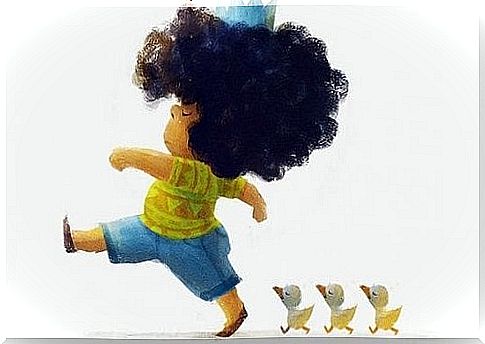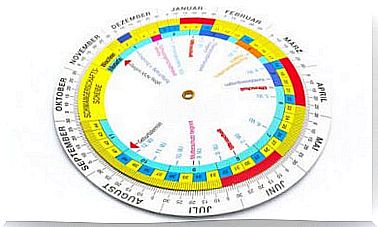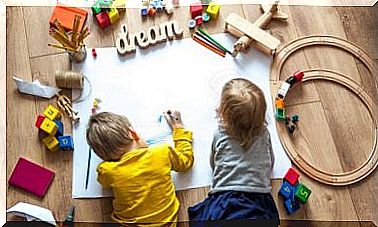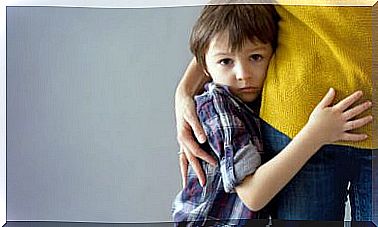Maria Montessori’s Advice On Raising Independent Children

This idea, transmitted by Maria Montessori, gives us a simple example of how we can make our children not only more independent, but also happier.
On the other hand, today there are many people who still do not welcome this pedagogical legacy that the famous Italian philosopher and teacher, Maria Montessori, left us.
These principles that aim to strengthen the child’s intellect and physique are seen by many as risky.
Letting the child be the artisan and discoverer of their own learning is, for many, something out of the ordinary.
However, we have to see this in the right light. It is not about “letting go”, “letting children be completely free” .
We, as adults, are the guides, the people who will show the little ones what they are capable of.
Every child has their own times and needs. It’s just about being respectful and intuitive so that they develop harmoniously and, above all, happy.
On the other hand, in addition to maximizing this development in our children, something we all want is for children to learn to be responsible and independent.
We’re not talking about the independence with which a 6-year-old can be made to act like a 10-year-old.
What we want is that, within each age group, the child assumes the autonomy and obligations that correspond to him.
Achieving this is a challenge, and in turn, we too will grow with them as mothers and fathers.
Tips for raising independent children

We’ll start by offering advice as simple as it is eye-catching: if you want an independent child, give them autonomy.
We know that saying “autonomy” can be a problem for many mothers and fathers.
Does that mean I should give her whatever freedom she wants? No way!
It’s about trusting our children and allowing them to grow up according to their age and characteristics.
There are mothers and fathers who strive every day to give the best for their children. They take care of every detail, tie shoes, arrange toys, prepare the school bag, comb, dress, etc.
But everything must have a limit, a balance and a purpose.
There comes a time when the little ones must step forward. Stop being babies to be children. Something like that will no doubt make them start having their own demands.
Therefore, nothing better than making it clear from the start: growing up and being independent means being responsible. And to be responsible, you need to demonstrate what you can do.
These would be some strategies based on the Maria Montessori methodology:
Children 2 and 3 years old
Maria Montessori established what are known as sensitive periods. These are times when children acquire the maximum learning potential.
That’s when they’re most receptive, and when we as parents have the best opportunity to mentor them.
- The two and three years are a special time. Children start to communicate, demand things, discover their world and want to mess with everything.
- It is an ideal time to delegate first responsibilities. However, these responsibilities will be supervised by us.
- They can start to dress themselves, they must learn to put away their toys, help set the table and take responsibility for their things, making sure they don’t break or break down.
In turn, it is essential that we make them participate in the tasks at home. The child is part of a home and must understand that we all have responsibilities.

Children 4 and 6 years old
An essential piece of advice when they reach that age is that the furniture in the house is adapted for them. Within their possibilities, children can and should do many things.
- We can put a stool so the child can start combing and brushing their teeth by themselves.
- Maria Montessori recommended that every child be able to develop in all areas that are part of daily life. Thus, it is ideal that at this age they do their first things in the kitchen (under our supervision), that they are able to serve breakfast, prepare a salad, a bowl of cereal, etc.
- They must feel participative, helpful and, above all, secure in seeing that they can do many things and do them well.
In order for a child to feel autonomous and to further enhance their independence , it is essential to give positive reinforcement.
Positive emotional caresses are foods that will make the little ones grow in happiness and security.
Children from 7 to 8 years old

Children between 7 and 8 years old experience the most important evolutionary moment of their life.
It is during this period that we must consolidate their self-esteem, the roots of their identity and, above all, this very important vision of self-sufficiency with which they can continue to grow, feeling useful, capable, independent, etc.
- Between 7 and 8 years a child can do many things. However, sometimes you will find that you can do more than we allow. Thus, it is necessary to give wings, but also good advice.
- At this age, the child should be completely responsible for their own things, both at home and in things related to school. It must also demonstrate that we can trust her. Based on this trust, the child will gain more independence.
In turn, and not least, we must keep in mind something basic. Not all children mature equally.
Therefore, we will not give certain responsibilities to children who cannot yet assume them. We must not force.
For example, if an 8-year-old child is very forgetful, restless and not very focused, we cannot give her the responsibility to prepare her lunch every day and put it in her backpack. Most likely you will.
each thing in its time
We must supervise and do this discreetly and affectionately. Little by little and day by day, the child will mature and achieve great things by itself.
What did you think of Maria Montessori’s educational advice? And at home, how do you make your children develop their own independence? Share with us!









